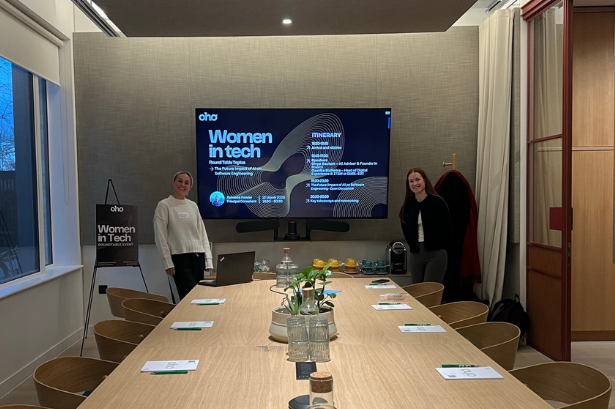How Will Supply Chain Issues Impact the Semiconductor Industry?
10 Feb, 20235 mins
In particular, the prolonged impact of COVID-19 on supply chains.
As factory closures and job uncertainty worldwide caused basic processes to be thrown into disarray, the embedded industry is still yet to recover from the delays.
(Source: Statista)
The supply chain issues facing the embedded industry
However, the problems that the sector is facing goes a little further than the hurdles that arose during the pandemic, with growing problems such as:
A decreasing availability of natural resources (especially lithium)
A drastic surge in operational costs reducing profitability
A rising political dispute in China over technology policies.
There has been some reasonable speculation recently about the longevity of businesses operating in the embedded industry - as well as the subsequent electronics, and semiconductor subsectors.
It’s a little scary, forcing leaders to keep their cards close to their chest and not seize opportunities that are coming their way. This response is understandable.
The consequences of an unhealthy supply chain
Regardless of the market they serve, organisations have always lived in fear of problems with their supply chain.
Whether the cause is:
factory closures
resource shortages
price inflation
talent gaps
economic uncertainty
…the problems these factors can cause are likely to have significant knock-on effects.
First, commodities become harder to source. Then, projects get delayed (as seen by the ongoing chip shortage across the world). Soon, tensions rise and disputes kick into action.
Sadly, what was once a strong and steadfast relationship between a business and their suppliers quickly becomes strained, with all parties feeling the pressure to perform.
Still, this is only the tip of the iceberg.
As the Rand Corporation explored, “supply chain disruptions can have an even more-direct impact than general chaos, causing threats to security. This kind of disruption can go beyond matters of justice, equity, and general prosperity.”
Impacts of supply chain issues on the embedded industry
It’s important, then, that firms in the embedded industry doesn’t just sit back and let the existing problems continue to grow.
Truthfully, you have a responsibility to step up to the plate, support your vendors, and look for cost-efficient solutions to the challenges you face.
Otherwise, you risk facing a series of insurmountable threats in the years to come, including:
A lack of access to critical resources.
Substantial delays in your stock ordering.
An unsustainable increase in costs.
Thankfully - while these problems can’t be solved entirely on your end - with some critical thinking, foreplanning, and careful management, the risks can be mitigated, giving your business its best chance at success.
How to protect your business from supply chain issues
With the security of your supply chain still in question, particularly as a wedge is formed between the United States and the Netherlands over China’s new policy, there’s some work to be done.
You have to be smart with your decision-making over the next few months.
1. Waste reduction
First of all, you’d be well advised to conduct an internal review of your current processes.
Why? Well, to reduce wastage across your organisation.
This would make you less reliant on ongoing supply provisions, increase your output, and even contribute towards your sustainability efforts.
One way that you can do this would be to invest funds into the repurpose/recycling of specific goods.
2. Inventory tracking
As a part of your plan to address supply chain issues, you’ll need to gain an accurate understanding of the materials you already have, what materials you have incoming, and the materials you will need going forward.
This way, you won’t make promises to clients that you can’t deliver on - taking the time to speak to your supplier months in advance when levels are running low.
In today’s digital age, inventory management is a problem that can be solved through innovative and comprehensive software.
3. Relationship management
Let’s face it. There are some tough conversations to be had.
You need to sit down with your provider and seriously ask them if they believe they can fulfil your ongoing (increasing) demand.
If not, it might be worth expressing that you’ll be looking for an additional partner that can supplement the resources you need.
This might be tough, but it’s the best way for everyone to continue business as normal.
4. Customer transparency
As seen throughout the pandemic, one of the biggest mistakes companies in the embedded industry made was to overpromise and underdeliver.
They didn’t yet realise the full impact that COVID-19 might have on their supply chain and were determined to continue manufacturing goods. However, this just wasn’t possible.
We should learn from this and, when you are facing issues, you should be as upfront with your customers as possible. This will be vital to your profitability throughout 2023 and beyond.
5. Employee retention
Finally, to truly tackle the supply chain issues you are facing, you need to ensure you have intelligent and creative minds working behind-the-scenes.
Ultimately, your employees will be the ones to design solutions when problems arise, and identify opportunities from threats.
Therefore, maintaining staff wellbeing and filling talent gaps when they arise should be your utmost priority if you want to survive what’s to come.
Recruiting through OHO
We pride ourselves on being the meeting place where exceptional talent can connect with fantastic opportunities.
We’re excited to be driving UK and US innovation.
Where there’s a plan, we have the people.
We’re an established and respected consultancy that offers a range of specialist services to a broad spectrum of clients and candidates within the ecommerce, IT, electronic engineering, finance and consultancy sectors.



